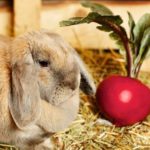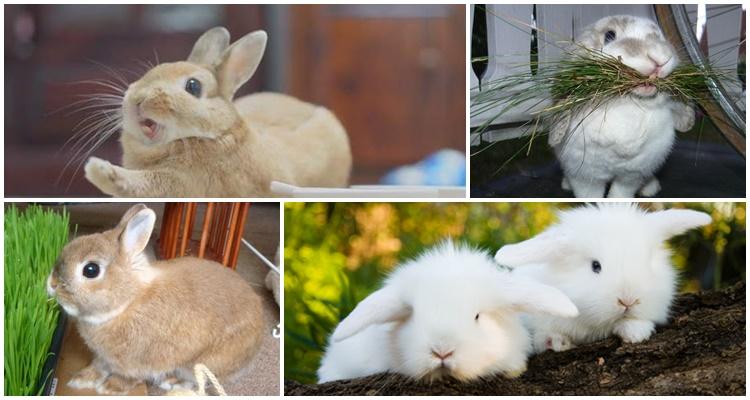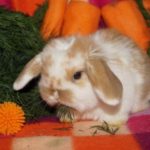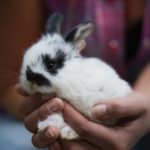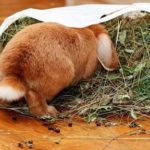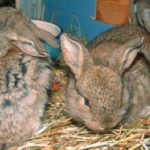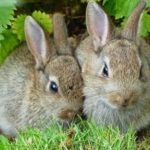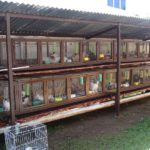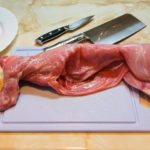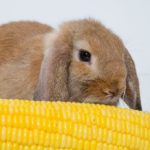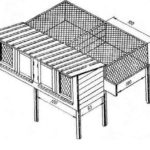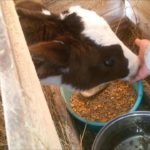The list of pets has expanded in recent years. Along with cats and dogs, people are increasingly getting rodents, namely decorative breeds of rabbits. These fluffies are able to touch anyone and have a peaceful character. Suitable for children and adults. However, they are considered capricious in terms of maintenance, and are especially selective and picky about food. Before purchasing or breeding these animals, it is better to study what to feed your decorative dwarf rabbit.
What vitamins do rabbits need?
The diet of all atypical breeds of rabbits must contain vitamin supplements:
- A.Responsible for the functioning of the nervous and reproductive systems.
- B vitamins. Necessary for a healthy coat and proper digestion.
- D. Regulates the absorption of minerals and other chemical elements needed by the body, is responsible for the strength of bones and tendons
- C. Responsible for strong immunity, normal functioning of the digestive tract and iron absorption.
- E. The substance ensures healthy offspring and regular offspring without loss of health of the female, and also strengthens muscles.
- K. Affects the elasticity and strength of the walls of blood vessels, most important during the breeding season.
What to feed a dwarf rabbit at home
The animal's diet should be as close as possible to what it feeds in natural conditions. Although long-eared animals are happy to try almost everything that is offered to them, you should be careful with atypical food.
Diet of a dwarf rabbit:
- Rough feed. This includes hay (alfalfa, chicory, field grasses), straw (which also serves as bedding) and young tree branches (rowan, oak, aspen, acacia, willow, alder, birch). The structure of the food has a beneficial effect on digestion, promotes natural cleansing, renewal and grinding of incisors. After all, rabbits' teeth grow throughout their lives. Fiber from coarse vegetation naturally removes excess hair from the body and prevents obesity.
- Juicy feed. Vegetables, fruits, fresh herbs, sprouted wheat, as well as root vegetables are included in this group. It is important to offer animals only fruits without broken barrels or signs of rot. Some will have to be boiled or ensiled, and some will have to be excluded altogether. In nature, succulent food is the basis of the rabbits’ diet; they serve as a supplier of micronutrients and vitamins.Your pet’s preferences will become clear over time, but you shouldn’t offer an abundance of food right away either. After all, rabbits have no sense of proportion.
- Factory-produced combined feeds. As a rule, such mixtures are selected taking into account the needs of a specific type of rabbit and there is no need to treat the animal with anything additional. The basic composition of the feed: a grain mixture of cereals, legumes, oilseeds with the addition of dried fruits, bran, muesli and grass flour granules.
- Vitamin supplements, premixes. To be sure, it is better to consult with a veterinarian about which specific complexes are suitable for a dwarf rabbit. If the fluffy is fed with compound feed, then vitamins are rarely given. If the basis is natural nutrition, then supplements should be in the diet constantly. In addition, rabbits are given salt stones and chalk as treats.
Feeding rules
The nutritional habits of rabbits of different ages are somewhat different. Babies require more care and attention, meanwhile, mature individuals are often capricious and refuse food.
For baby rabbits
In the first weeks, newborn rabbits are completely dependent on their mother and feed on her milk, so the rabbit needs to be given more food than usual. Feeding with hay and grain begins at three weeks. Young individuals already at 1.5-2 months eat compound feed - they grind down new teeth. You can gradually offer rolled oats and small hay. At this time, the rabbits are separated from their mother, they experience stress and require more attention than usual.
From 3 months, fruits and vegetables, as well as B vitamins, are gradually introduced into the diet. Feed frequently, up to 5 times a day. Constant access to clean water is also necessary. The older a rabbit gets, the more varied food its body requires.
For adults
Rabbits are animals that react acutely to improper diet. The result of a careless attitude can be problems with digestion, hair, immunity, and the ability to give birth. The ideal feed ratio for a mature dwarf rabbit is:
- 75% – roughage or dry food;
- 15% – concentrated feed;
- 10% – juicy food;
- fresh, clean water daily, in plenty;
- mineral supplements and treats (chalk, salt) – as needed.
It is worth feeding tightly twice a day, in between giving juicy vegetables, herbs or berries. Access to the feeder with granulated food should be constant.
Features of feeding in winter
The rabbit's stomach is designed in such a way that new food pushes out old food. Accordingly, long-eared animals must constantly chew something. For the winter, it is worth preparing fresh hay from tender grasses and meadow plants in advance. As well as young branches and bark. In the cold months, the percentage of succulent foods in the diet is increased: pumpkins, turnips, carrots, greens.
What not to give
To avoid diseases, it is forbidden to feed rabbits:
- Sweets, sausage, boiled meat, snacks, bread.
- Dangerous plants: dope, henbane, tansy, celandine, buttercup.
- Cabbage (causes diarrhea), old potatoes, fresh beets.
- Feed and stale grain.



